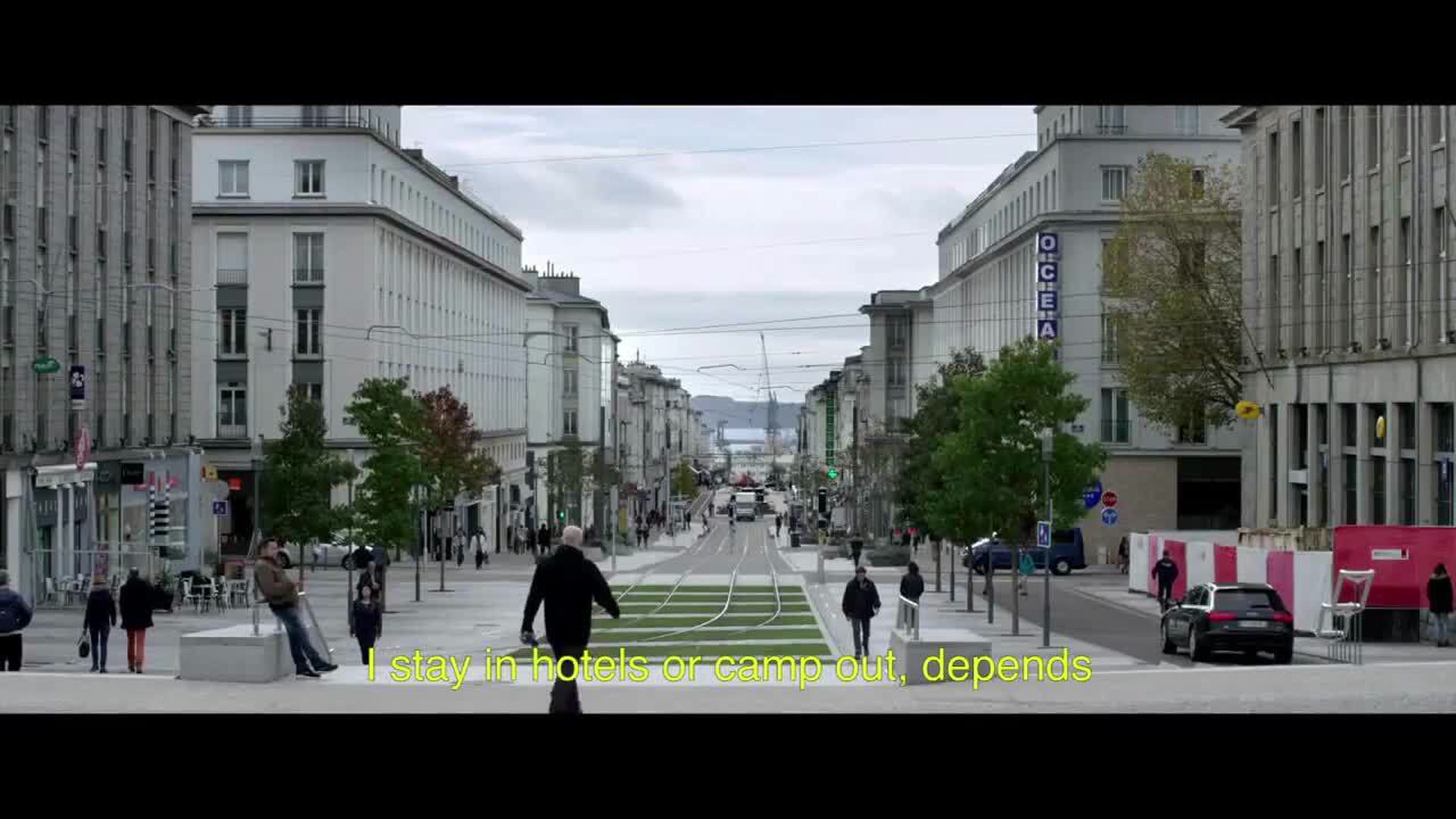Armond White
Staying Vertical Explores the Spectrum of Gay Sexuality
Staying Vertical Explores the Spectrum of Gay Sexuality

Staying Vertical
By continuing to use our site, you agree to our Privacy Policy and Terms of Use.
Staying Vertical Explores the Spectrum of Gay Sexuality

"Have you ever thought about a movie career?" Leo (Damien Bonnard) asks a curly-haired young man he spots on the side of a country road in Staying Vertical. Leo is a filmmaker, but he's also a flirt. Later, when strolling through the hillside, Leo meets Maria (India Hair), a young shepherdess and they click. At the first moment of their hook-up, director Alain Guiraudie jumps to a close-up of Leo's crotch--an image confirming both Maria and Leo's horniness.
But didn't the first scene suggest Leo was gay? An old man who had witnessed Leo's cruising and the young man's rejection snapped "He didn't like your advances" and then encourages Leo "Take that little fag off my hands." Every scene in Staying Vertical contains inappropriate behavior and puzzling sexual identities.
Guiraudie, who directed the deliberately outrageous but ultimately pointless Stranger By the Lake--a banal exercise in spiking genre filmmaking with brazen gay exhibitionism--continues to intertwine the mysteries of cinema with the mysteries of sex in Staying Verticle.
Just as Leo searches for a new film subject, and in the process discovers new life goals (such as fatherhood and selflessness), Guiraudie himself explores and disturbs our personal and social preconceptions. He's particularly anarchic when Staying Vertical teases about the sexual and moral notions we receive from movies and popular culture. Guiraudie is what's called "stormy-petrel." He likes trouble and is a cinematic mischief-maker. Jean-Luc Godard praised Guiraudie's 2001 The Old Dream That Moves (probably because Godard sensed a kindred spirit in the film's political inquiry and formal rigor), but the filmmaker who Staying Vertical most brings to mind is the Surrealist Luis Bunuel.
As Staying Vertical phases in and out of Leo's new-found relationships and ambitions ("I always wanted a baby without the bother of a woman"), terrifying reality mixes with the bewildering unreal. Disturbing scenes of female sexuality, family tradition and social disorder (through a vaginal close-up, a phallic close-up and A Clockwork Orange-style social dysfunction) are, essentially, blunt confrontation with human connection, sexual desire and suspicion, racism and classism.
Leo gets frustrated by attempts to obstruct his fatherhood and visits a female healer in a hut in the woods who treats him with tree tendrils connected to EEC monitors. This shift into Surrealism beats any of Lars Von Trier's apocalyptic fantasies; not even the sexually explicit Antichrist, Melancholia and Nymphomaniac match Guiraudie's insight into sexual totem and taboo. Leo, like Guiraudie, gets past the point of respecting taboos and explores his own psyche. The film becomes a comic psychodrama, not necessarily to be taken literally.
This is where Guiraudie uncannily satirizes a gay man's erotic soul. Everyone Leo meets has sexual designs on him and he returns the favor--especially during an explicit scene of intergenerational fornication (it becomes the subject of a hilarious media headline). Guiraudie also boldly admits the difficulty gay men have balancing their desires with natural and spiritual risks. The film's title offers a metaphor in which Leo (bearded like The Good Shepherd), confronts a company of wolves who represent society's ravenous threat. It depicts how the popularly proclaimed "spectrum of human sexuality" can also hold real personal risks for queers.
For pop music fans, the title scene recalls the Los Angeles punk group X's great, terrifying sex-and-fate song "The Hungry Wolf." Guiraudie has created an extraordinary queer comedy about fate, death and single-minded predatory drive. Staying Vertical is worth thinking about a lot.
